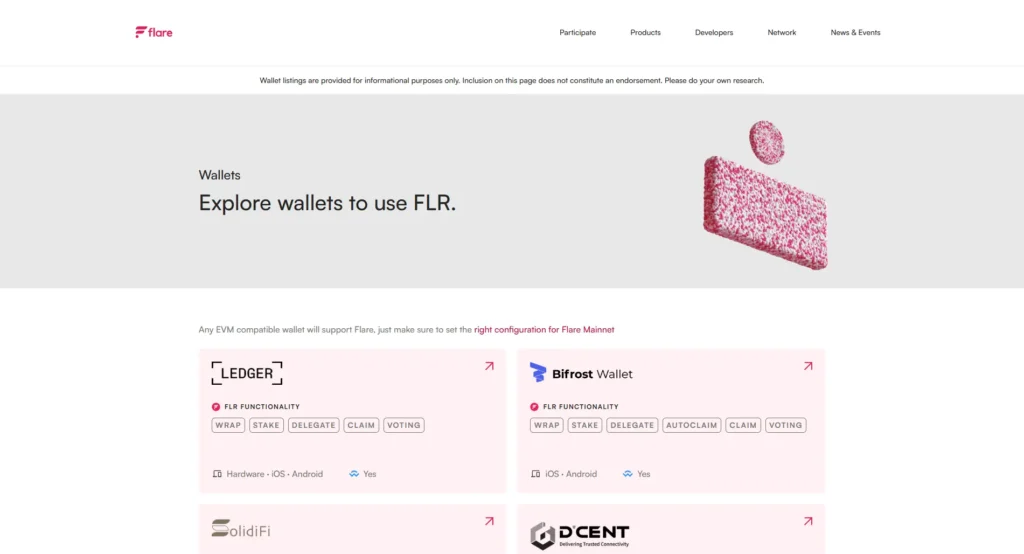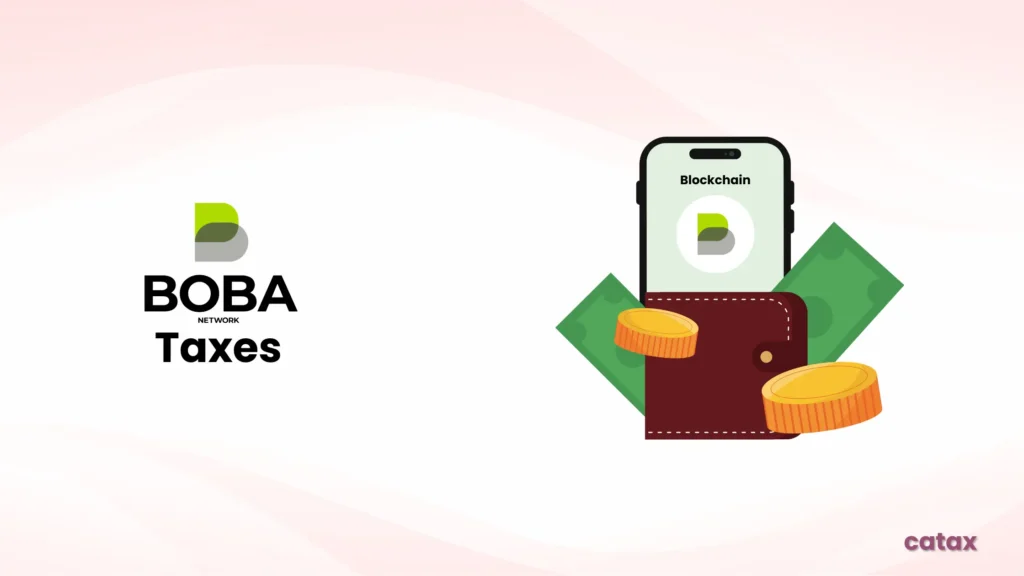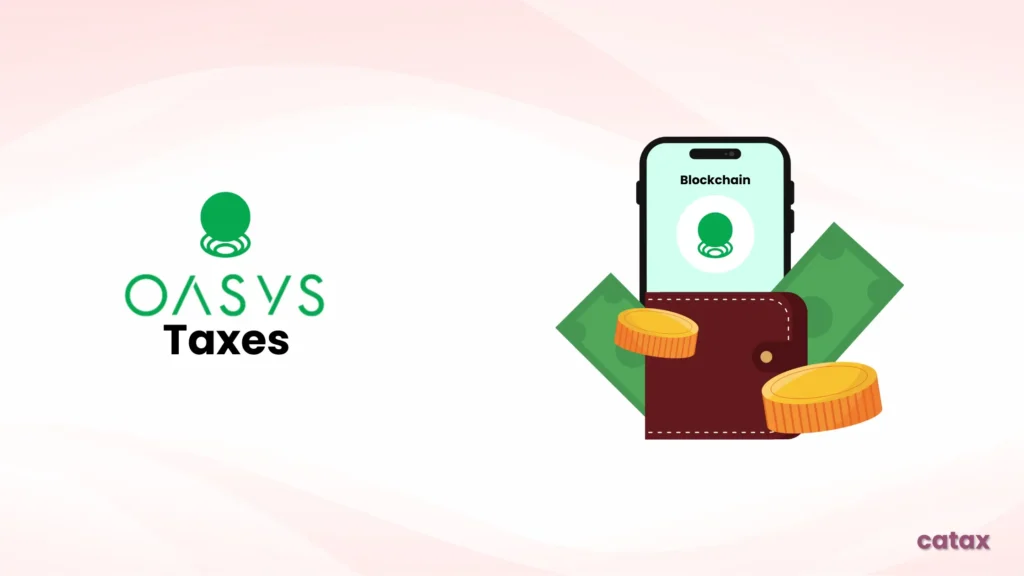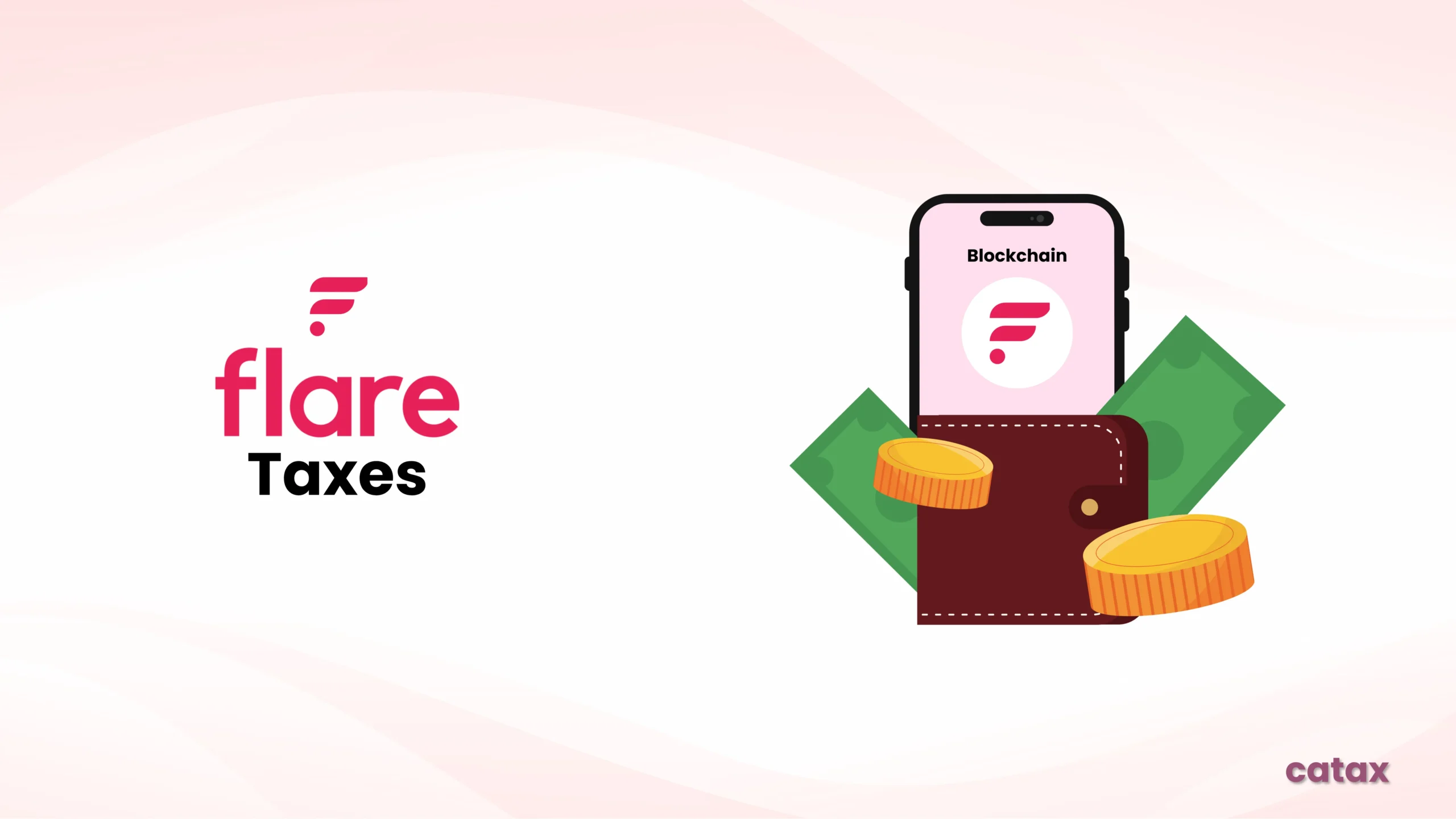Cryptocurrency tax rules vary by country, and Flare Network (FLR) taxes transactions may be taxed differently based on local laws. Whether you buy, sell, trade, or stake FLR, understanding how tax authorities classify these activities helps you stay compliant and avoid penalties.
This guide simplifies Flare Network taxes so you can manage your tax obligations with clarity and confidence.

- How to Connect Your Flare Network Wallet to Catax
- Are Flare Network (FLR) Transactions Taxable?
- Can You Deduct Trading Fees and Other Costs?
- How Is Flare Network (FLR) Taxed Based on Holding Period?
- How Is Staking Income Taxed?
- Can You Claim Flare Network (FLR) Losses for Tax Benefits?
- How to Stay Compliant with Flare Network (FLR) Tax Rules
How to Connect Your Flare Network Wallet to Catax
To track your Flare Network (FLR) transactions and calculate taxes effortlessly, follow these steps to connect your wallet to Catax:
- Open your Flare Network wallet or use a block explorer (such as MetaMask, Trust Wallet, Ledger, or any supported wallet).
- Copy your public wallet address from your Flare Network wallet.
On Catax:
- Log in to Catax and select your country.
- Select Chain, then search for Flare Network Wallet.
- Paste your public address and click Connect.
Once connected, Catax will automatically track your FLR transactions and simplify your crypto tax reporting.
Calculate My Taxes ➤Are Flare Network (FLR) Transactions Taxable?
Yes, in most countries, Flare Network transactions are taxable. Governments may treat FLR as a capital asset, property, or income depending on how it’s used.
When Do You Have to Pay Taxes on Flare Network (FLR)?
You may be required to pay taxes when you:
- Sell FLR for a profit – If you sell Flare Network tokens for more than you paid, the gain is usually subject to capital gains tax.
- Trade FLR for another cryptocurrency – Swapping FLR for Bitcoin, Ethereum, or any other crypto can trigger a taxable event.
- Use FLR to make purchases – Using Flare tokens to buy goods or services may result in capital gains tax if the value has increased.
- Earn FLR from staking – Staking rewards in FLR are often taxed as income when received.
- Get paid in FLR – If you receive FLR for work or services, it’s generally taxed as income based on its market value at the time.
Since tax treatment differs by jurisdiction, always check how your country handles crypto taxation.
Can You Deduct Trading Fees and Other Costs?
Many Flare Network users wonder if they can deduct associated expenses like trading or wallet fees. This depends on the tax laws in your country.
Some countries allow deductions for:
- Trading fees when buying or selling FLR.
- Network or transaction fees when transferring FLR.
- Security costs like hardware wallets or secure key storage.
Other jurisdictions may only allow deduction of:
- The original purchase cost of FLR (your cost basis), excluding extra expenses like fees or tools.
Check your local tax rules to know exactly what’s deductible.
How Is Flare Network (FLR) Taxed Based on Holding Period?
Tax rates on FLR profits may vary depending on how long you held the tokens:
- Short-term holdings (less than a year) – Typically taxed at standard income tax rates.
- Long-term holdings (more than a year) – Some regions offer lower tax rates to incentivize long-term holding.
- Flat-rate systems – A few countries apply a fixed rate on all crypto gains, regardless of holding period.
Understanding your country’s approach can help optimize your tax planning and minimize tax liability.
You can also check out our Country-Specific Guide for Crypto in Your country. This guide provides insights on regulations, tax implications, and compliance measures breifly explained for each country.
How Is Staking Income Taxed?
Staking FLR tokens can offer a steady stream of passive income—but tax rules vary widely across countries. Some tax authorities apply taxes as soon as you earn staking rewards, while others only tax you when you sell or exchange them.
How Countries Tax FLR Staking Rewards
- Taxed as income – In many countries, staking rewards are treated like salary or freelance earnings. You owe taxes at standard income tax rates the moment you receive the FLR.
- Taxed as capital gains – Other countries treat staking rewards as capital assets. In these cases, tax applies only when you sell, swap, or spend the FLR, and you pay on the profit made.
If you’re staking FLR, knowing when your country considers the rewards taxable helps you stay ahead on tax planning. Some governments apply taxes even if you haven’t sold your rewards.
Can You Claim Flare Network (FLR) Losses for Tax Benefits?
Not every FLR trade results in profit. If you sell your FLR at a loss, you might be able to use that loss to reduce your overall tax burden—depending on your country’s crypto tax policy. How Countries Handle Crypto Losses:
- Loss offsets – Some countries allow you to subtract your FLR losses from other crypto gains, lowering the amount of taxable profit.
- Loss carryforward – If you had no gains this year, certain jurisdictions let you carry forward losses to reduce future tax bills.
- Limited deductions – In some places, crypto losses aren’t tax-deductible at all, meaning you can’t claim them to reduce taxes.
Keeping detailed transaction records helps you report losses correctly and get tax benefits where allowed.
How to Stay Compliant with Flare Network (FLR) Tax Rules
Crypto tax laws are evolving quickly. Staying compliant helps you avoid penalties and ensures smooth tax filing. Here’s how:
- Understand how FLR transactions are taxed in your country – Are FLR gains considered capital gains, income, or business revenue?
- Keep detailed records – Document every Flare Network transaction, including buys, sells, trades, staking activities, and spending.
- Use a crypto tax tool like Catax – Catax simplifies tax compliance by automatically tracking your FLR activity and calculating your obligations.
- Consult a crypto tax expert – If local regulations are unclear, a tax professional can help you stay compliant and make informed decisions.
Stay informed, keep your records in order, and use smart tools to navigate Flare Network taxes with ease and confidence.


